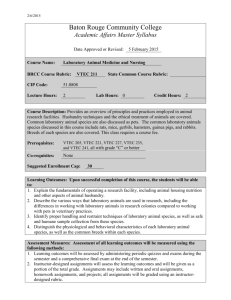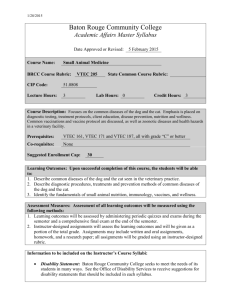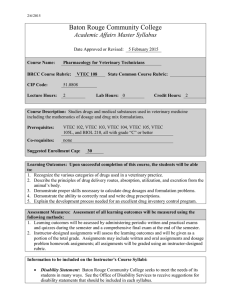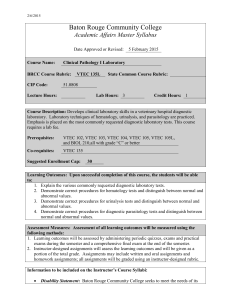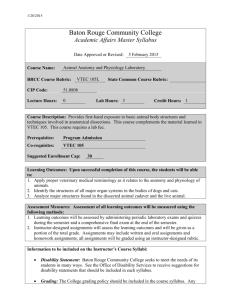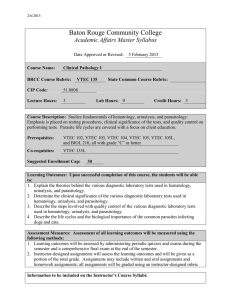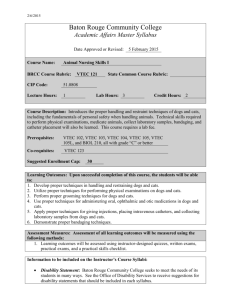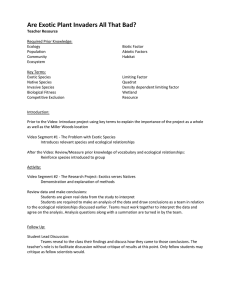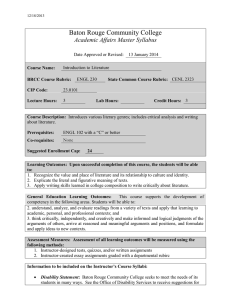Baton Rouge Community College Academic Affairs Master Syllabus
advertisement
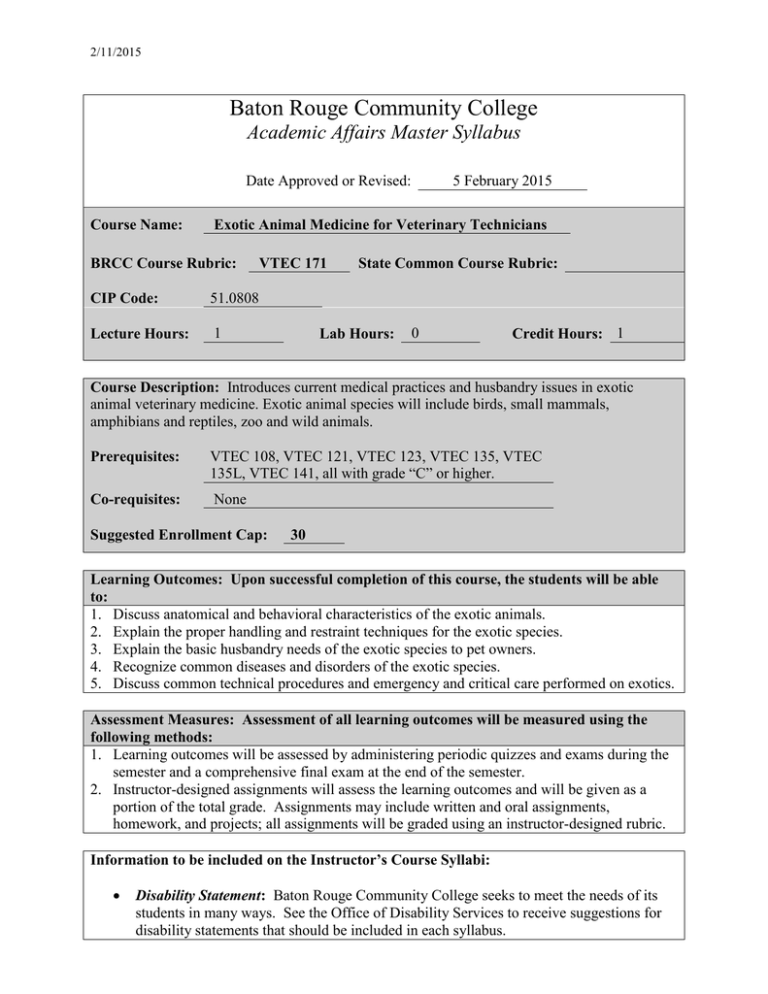
2/11/2015 Baton Rouge Community College Academic Affairs Master Syllabus Date Approved or Revised: Course Name: 5 February 2015 Exotic Animal Medicine for Veterinary Technicians BRCC Course Rubric: CIP Code: 51.0808 Lecture Hours: 1 VTEC 171 State Common Course Rubric: Lab Hours: 0 Credit Hours: 1 Course Description: Introduces current medical practices and husbandry issues in exotic animal veterinary medicine. Exotic animal species will include birds, small mammals, amphibians and reptiles, zoo and wild animals. Prerequisites: VTEC 108, VTEC 121, VTEC 123, VTEC 135, VTEC 135L, VTEC 141, all with grade “C” or higher. Co-requisites: None Suggested Enrollment Cap: 30 Learning Outcomes: Upon successful completion of this course, the students will be able to: 1. Discuss anatomical and behavioral characteristics of the exotic animals. 2. Explain the proper handling and restraint techniques for the exotic species. 3. Explain the basic husbandry needs of the exotic species to pet owners. 4. Recognize common diseases and disorders of the exotic species. 5. Discuss common technical procedures and emergency and critical care performed on exotics. Assessment Measures: Assessment of all learning outcomes will be measured using the following methods: 1. Learning outcomes will be assessed by administering periodic quizzes and exams during the semester and a comprehensive final exam at the end of the semester. 2. Instructor-designed assignments will assess the learning outcomes and will be given as a portion of the total grade. Assignments may include written and oral assignments, homework, and projects; all assignments will be graded using an instructor-designed rubric. Information to be included on the Instructor’s Course Syllabi: Disability Statement: Baton Rouge Community College seeks to meet the needs of its students in many ways. See the Office of Disability Services to receive suggestions for disability statements that should be included in each syllabus. Grading: The College grading policy should be included in the course syllabus. Any special practices should also go here. This should include the instructor’s and/or the department’s policy for make-up work. For example in a speech course, “Speeches not given on due date will receive no grade higher than a sixty” or “Make-up work will not be accepted after the last day of class.” Attendance Policy: Include the overall attendance policy of the college. Instructors may want to add additional information in individual syllabi to meet the needs of their courses. General Policies: Instructors’ policy on the use of things such as beepers and cell phones and/or hand held programmable calculators should be covered in this section. Cheating and Plagiarism: This must be included in all syllabi and should include the penalties for incidents in a given class. Students should have a clear idea of what constitutes cheating in a given course. Safety Concerns: In some programs this may be a major issue. For example, “No student will be allowed in the safety lab without safety glasses.” General statements such as, “Items that may be harmful to one’s self or others should not be brought to class.” Library/ Learning Resources: Since the development of the total person is part of our mission, assignments in the library and/or the Learning Resources Center should be included to assist students in enhancing skills and in using resources. Students should be encouraged to use the library for reading enjoyment as part of lifelong learning. Expanded Course Outline: I. Introduction A. Review of common exotic species B. Handling concerns with exotics C. Legal concerns with exotics D. Organizations with expertise in handling, rearing and rehabilitating exotic and wild animal species. II. Avian medicine III. Small Mammal medicine IV. Amphibian and Reptile medicine V. Client education and at home care VI. New Procedures and Current Topics in Exotic Medicine 2
